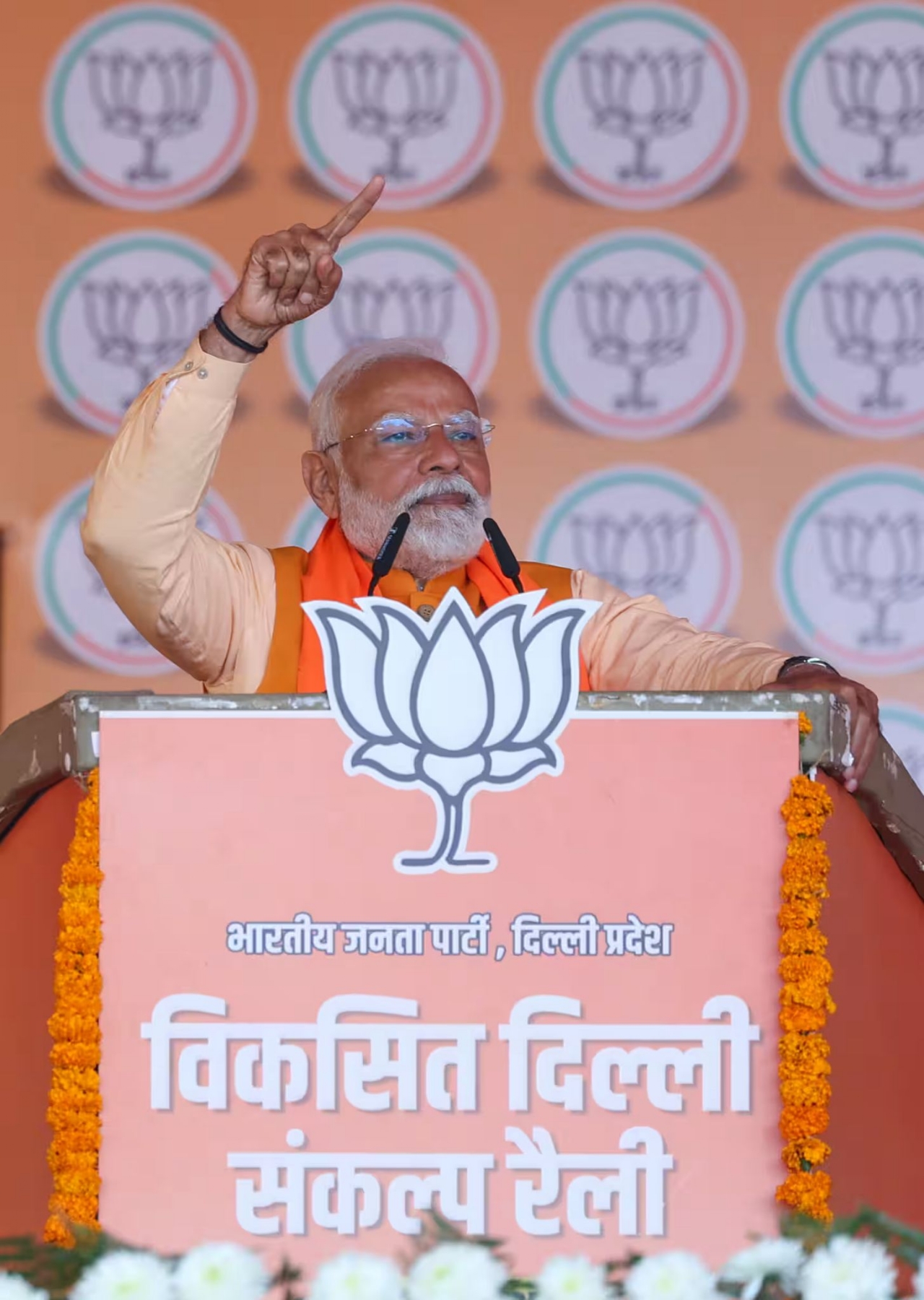Modi Promises Most Middle-Class Friendly Budget for Delhi Voters

As the campaigning for Delhi Assembly elections entered its final phase, Prime Minister Narendra Modi focused on wooing the city’s middle class with key highlights from the Union Budget, delivered just a day before. In a last-minute push for the BJP, Modi canvassed in R K Puram—an area with a large concentration of government employees—and emphasized the government’s support for the middle class, tax relief for those earning up to Rs 12 lakh annually, and the implementation of the 8th Pay Commission.
Describing the recent Union Budget as the “most middle class-friendly in India’s history,” Modi reassured voters that his government was committed to the financial well-being of the middle class. “Earlier, the middle class would worry over the Budget, but now this Budget has come as a relief, offering zero income tax for those earning up to Rs 12 lakh annually,” Modi said. He stressed that the youth, especially those in early stages of their careers, would benefit the most from this tax rebate.
Taking a swipe at previous governments, he positioned the BJP’s tax policies as pro-people, contrasting it with past administrations that, according to him, imposed heavy taxes to fund their own agendas. “While previous governments filled their coffers with heavy taxes, the BJP is focused on delivering financial relief,” he remarked.
The Prime Minister also promised to continue supporting senior citizens, citing the implementation of the 8th Pay Commission and proposed reforms to pension schemes and social security. “Our government cares for both taxpayers and pensioners. The 8th Pay Commission is a step toward ensuring economic security for our retired citizens,” he noted.
Highlighting the BJP’s promise to bring Ayushman Bharat to Delhi, Modi vowed to extend the scheme, which offers health insurance to those over 70, with an additional Rs 5 lakh in coverage for all residents if the party wins. This is a direct challenge to the AAP’s election promise to provide free treatment for those above 60 in private hospitals.
In a stirring address on Basant Panchami, Modi declared that February 5, the day of voting, would herald a new era of development in Delhi. “On February 5, Delhi will witness the spring of progress. This time, the BJP will form the government,” he told supporters, who chanted “Modi Sarkar” in unison.
To further appeal to the youth, the Prime Minister focused on job creation and skill development, referencing initiatives like Digital India and plans for gig workers. “In Delhi, many youth work as gig workers. We’re launching a portal to help them register, ensuring they have access to insurance and government benefits,” he said.
Modi also took aim at the AAP, which he repeatedly referred to as “AAP-da” (calamity), accusing the party of stalling development in Delhi. He urged voters to reject the AAP for another five years, warning that it would lead to further setbacks for the city.
“11 years of AAP rule has blocked Delhi’s development. Please, don’t let the AAP government return,” Modi said. He also claimed the recent defection of eight AAP MLAs to the BJP was indicative of growing dissatisfaction within the party.
Addressing concerns raised by AAP about BJP’s governance, Modi reassured Delhi residents that the BJP would not disrupt welfare schemes like free power and water. He also emphasized that the BJP was the only party capable of addressing Delhi’s environmental and economic challenges, including the financial losses suffered by local businesses due to pollution.
In a lighter moment, Modi shared messages he had received from his supporters in Bihar, thanking Finance Minister Nirmala Sitharaman for prioritizing the region’s concerns in the Union Budget.
As the election campaign nears its conclusion, Modi’s rhetoric aimed at securing votes by portraying the BJP as the party of progress and financial relief, in stark contrast to the governance of the AAP.